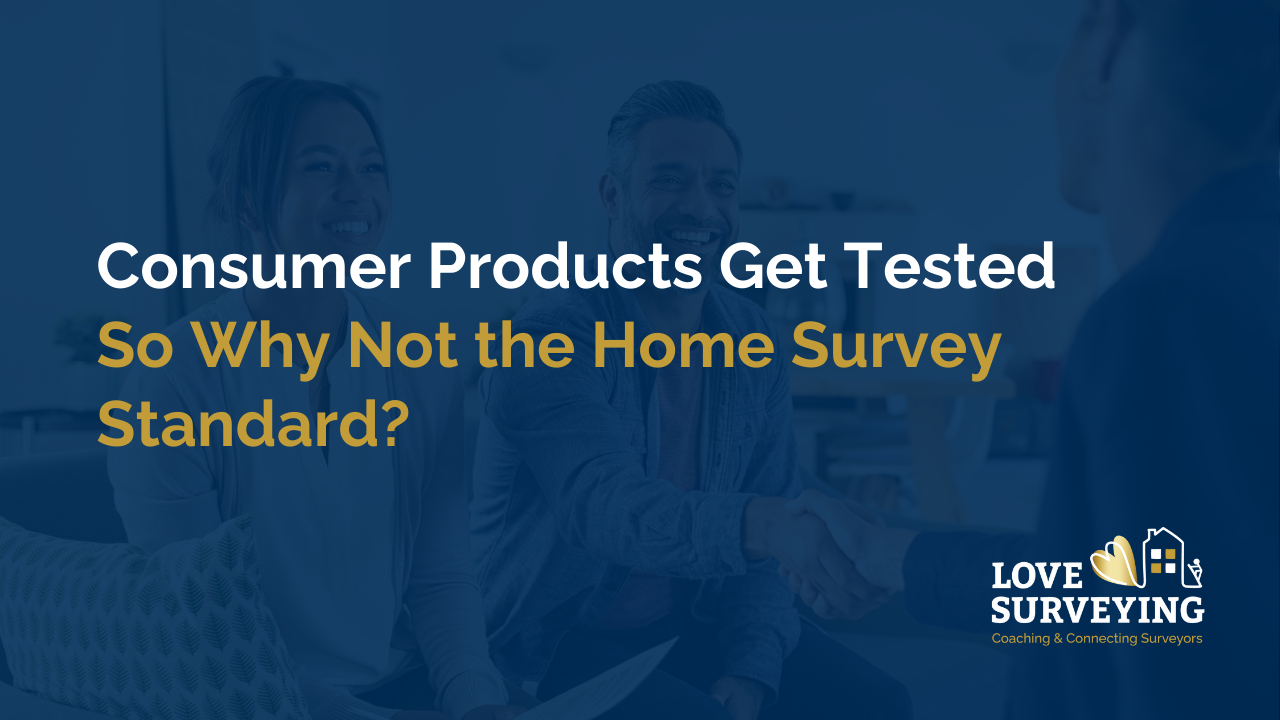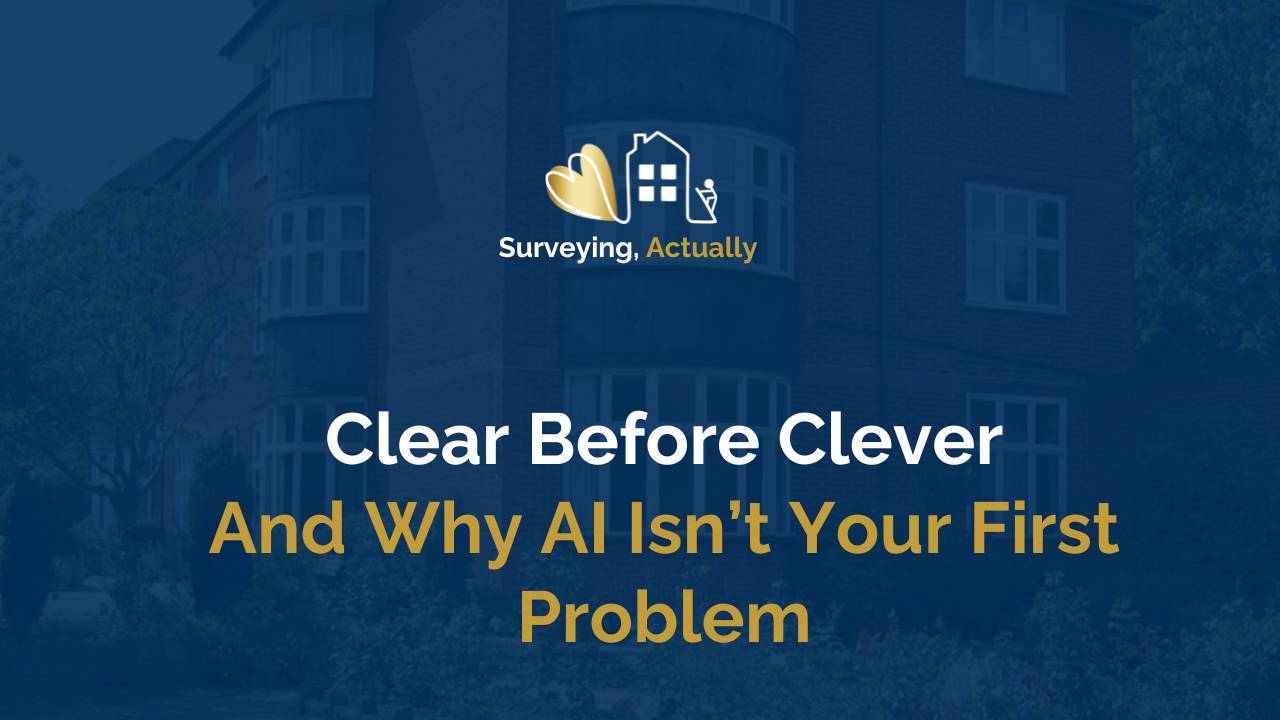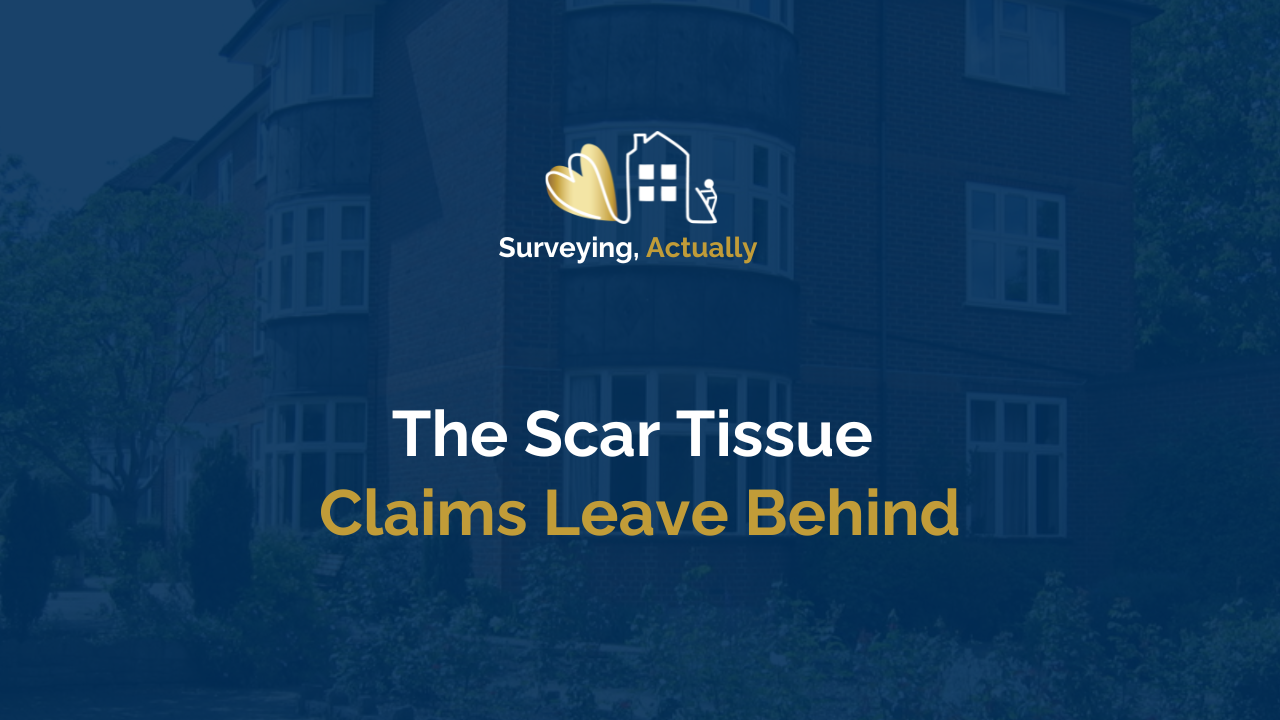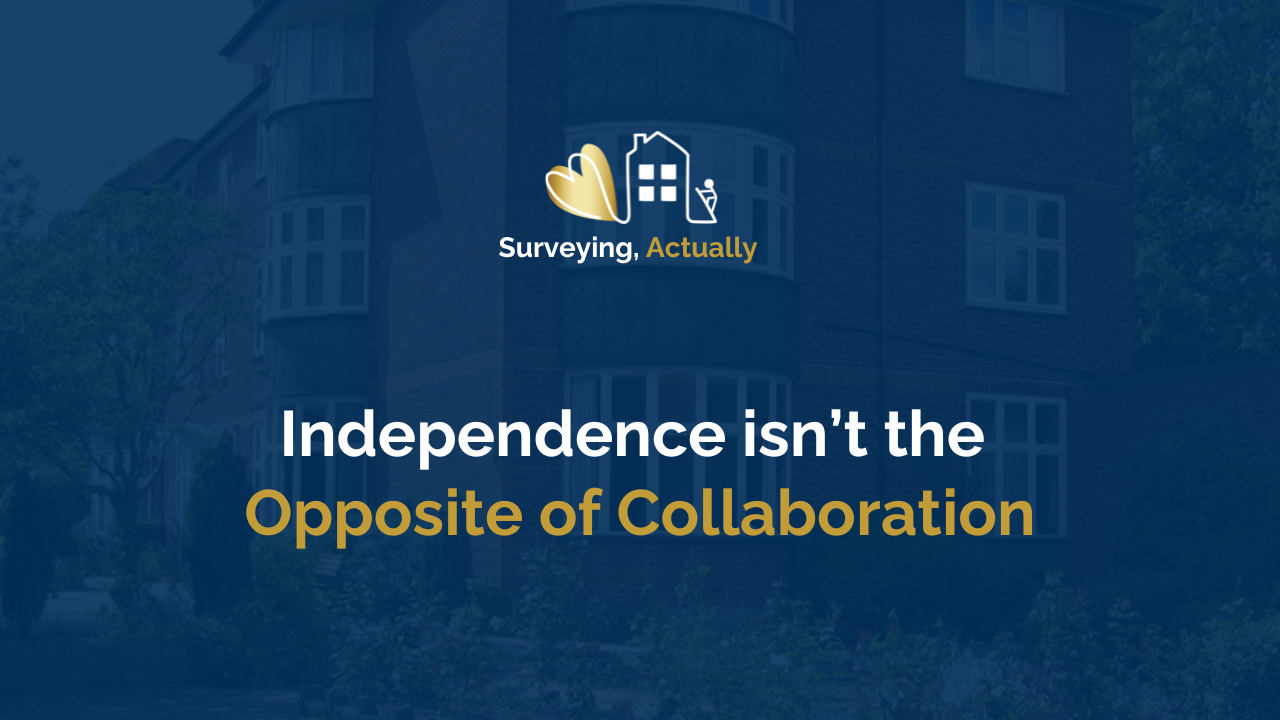Consumer Products Get Tested - So Why Not the Home Survey Standard?
Sep 04, 2025
Buying a home isn’t just a transaction; it’s a leap of faith. In that moment, what people want from us is simple: clarity, confidence, and a sense that someone has their back.
That’s what a good home survey should deliver. Yet the latest insight we have, albeit limited, tells a different story. Around 1 in 10 buyers commission a pre-purchase survey. Nearly three-quarters (72%) either think a mortgage valuation is a survey or aren’t sure what it is. And when a survey is commissioned, 23% of buyers renegotiate the price as a result - proof that surveys change outcomes for consumers (RICS, 2024).
If a product can be both widely misunderstood and highly consequential, why would we not test it thoroughly with the people who rely on it? This is the core question at the heart of the current RICS Home Survey Standard consultation.
The consumer is the point
RICS’ new Home Survey Standard (2nd ed.), which is out for consultation until 14th October, sets out a framework that rightly asks surveyors to understand client needs, explain levels clearly and deliver reports that are “factual, unambiguous,” use plain language, and include a tailored overall opinion. It also requires proportionate reflection time and proper recording of information so that advice is considered, not rushed.
Those are strong principles. But principles alone don’t guarantee a good consumer experience. When 90% of buyers are not commissioning a survey, we should be curious - even humble - about why that is. Is it cost? Timing? Confusion about what a survey offers? Lack of perceived value? Or the way results are communicated? Why would 90% of buyers take such a risk on their most expensive and risky purchase, rather than instruct a surveyor?
This is where design thinking in standards helps: start with real user needs, map pain points, prototype fixes, test, iterate. Surveying standards should absorb that cycle, not sit apart from it.
Respect for colleagues – and honesty about constraints
I want to be crystal clear: I am not criticising my professional colleagues. Many have poured care and time into shaping the HSS, and I value that hugely. But if contributors are presented with limited data, and if assumptions about consumer behaviour go untested, the outcomes can only be limited too. That’s not on individual surveyors; it’s a process issue, and it sits at the heart of how RICS regulates and creates standards.
Transparency matters here. The HSS expert working group has, over time, changed composition - something that hasn’t been clearly communicated to members. The Savanta research data provided by RICS has not been shared openly. Further, the only data about home survey complaints was a snippet shared informally from a Sava Trainer and Assessor meeting on LinkedIn. For a standard with such reach, I would have expected more research, and for results to be published openly so members can scrutinise and improve them together.
We don’t operate in a vacuum
Every decision a surveyor makes ripples through the chain. Conveyancers, estate agents, lenders and advisers all feel the effects of what we say and how we say it. That’s why a standard can’t be built in isolation. It has to be co-designed with the rest of the property sector.
Here’s an example. At an industry meeting in early 2025, RICS highlighted a statistic: 23% of buyers were able to renegotiate the price of their property following a survey. This was presented as a win - proof that surveys make a difference. And in one sense, it was.
But two things struck me. First, when I asked whether we knew why the figure wasn’t higher, what issues buyers were renegotiating on, and how many sales fell through as a result, there were no answers. Second, I overheard colleagues from conveyancing and estate agency quietly grumbling that renegotiations created delays, extra paperwork and friction in the process.
From the surveyor’s perspective, we were celebrating a win. From theirs, it was a headache. Both views are valid, but they reveal the gap: we were not aligned with the wider purpose of why we do home surveys in the first place.
I’ve written before about Reservation Agreements. The HSS makes no mention of them, yet they are becoming more widespread and represent a real opportunity for surveyors to add value - but only if they have clear guidance.
Surveyors can and should remain independent and professional. But independence doesn’t mean isolation. Our work is delivered in context, and we have to stay alive to that. Otherwise, we risk measuring success on our own terms while missing what really matters to consumers and the wider industry.
Evidence first, then standard
Through the Home Buying and Selling Council, I have called for independent consumer research and for testing a triage-style approach that blends what people worry about with the issues we know cause problems - to produce better, earlier, clearer advice.
- If only 10% commission a survey, why do so many take the risk?
- If 72% confuse a mortgage valuation with a survey, what must change in our language and education?
- If 23% renegotiate after a survey, how do we maximise that consumer benefit while minimising delay and friction?
These aren’t difficult questions; they’re survey design requirements.
And I think it is important to note, the evidence and research behind these numbers have not been shared and fully scrutinised. In particular, less than 10% commissioning of a survey did not ring true for the surveyors who voted in the poll in The Surveyor Hub. I also listened to a webinar this week where someone commented that surveyors shouldn't worry about the 90% who aren't having surveys.
What the Standard asks of us - and what we must ask of the Standard
The HSS asks surveyors to clearly benchmark services by level, explain what clients can expect, and provide property-specific advice, including risks to people, property, legal, and energy matters, in accessible terms. It also expects robust pre-service discussions, conscientious inspection, and post-report engagement. These are good, necessary guardrails.
But it is fair - and responsible - to ask RICS for the same standard of evidence we are asked to provide. What independent consumer testing underpins the HSS? If the Savanta sample is statistically valid, is it sufficiently representative for a market this large and varied? Statistical significance and practical adequacy are not the same thing when you’re redesigning a system. What prototypes were tested with buyers and sellers? Short, long, visual, layered - which formats actually improved understanding and decision-making? Where is the cross-sector consultation? What did conveyancers, estate agents and lenders say about timings, liability interfaces and consumer comprehension - and how is that reflected? How will success be measured and shared? Complaints, fall-throughs, renegotiations, time-to-exchange, consumer trust - what’s the baseline, and what’s the target?
None of this is adversarial. It’s the consumer-centred way to build a standard that surveyors can follow with confidence and that meets the needs of the public. It protects consumers, supports practitioners, and gives the wider industry a common language and rhythm.
If surveys can change purchase decisions, then the standard that governs them must be tested with the people whose decisions are at stake.
Where RICS Needs to Go From Here
RICS now needs to revisit what it set out to achieve with the Home Survey Standard. That means pausing to consider whether the current approach is enough - and engaging more widely with others in the sector to create a standard that genuinely works in practice.
The consultation on the HSS is open until the end of September, and I have already asked for more time for members to respond. But extending the deadline alone isn’t enough. What’s needed is independent research with adequate breadth and depth, so that we truly understand how consumers experience surveys and what they need from us.
Let’s go further:
- Prototype a triage pathway that meets people where they are, guiding them to the right level of service at the right moment and explaining outcomes in plain English.
- Co-design with the sector, so that surveying integrates cleanly with conveyancing, agency and lending, instead of adding friction.
- Publish the methods and results, so members can see the evidence, challenge assumptions, and help refine the standard.
This is how we make the HSS something we can stand behind with confidence - not just as professionals, but as part of a system that serves the public better.
The HSS gives us a structure. Now we need the evidence and consumer testing to make it sing.
About the data: Figures cited are drawn from RICS consumer research presented to the Property Surveyors Sub-Group in 2024. This included a UK consumer survey of homebuyers, which found that only around 10% commissioned a survey (this was also reported in another research piece here). Additionally, 72% of respondents confused a mortgage valuation with a survey, and 23% of those who did commission one renegotiated the purchase price as a result.
In addition, it was reported that 325 RICS members contributed to the first phase of the consultation; however, at the time, many surveyors noted that it was only possible to contribute fully if they were surveyors carrying out home survey inspections and reports, which excluded many members.
While statistically significant, the sample size raises questions about whether it is adequate for a market of this scale and whether broader, independent consumer research is needed to fully test the Home Survey Standard.
A Personal Note
These thoughts come from my experience of over 20 years in surveying and supporting both consumers and surveyors. They’re simply my perspective - shared to open up discussion and encourage more voices to feed into the consultation. If you have a view, please take a moment to respond - your input really does make a difference. This is the link to the consultation.
Enjoyed this article?
- You might also like: What the Home Survey Consultation Gets Right
- Find it useful? Please share it with friends or colleagues who might benefit.
- Want to support my work? Leave me a quick Google Review or Buy Me a Coffee ☕. Every little helps as a small business.





